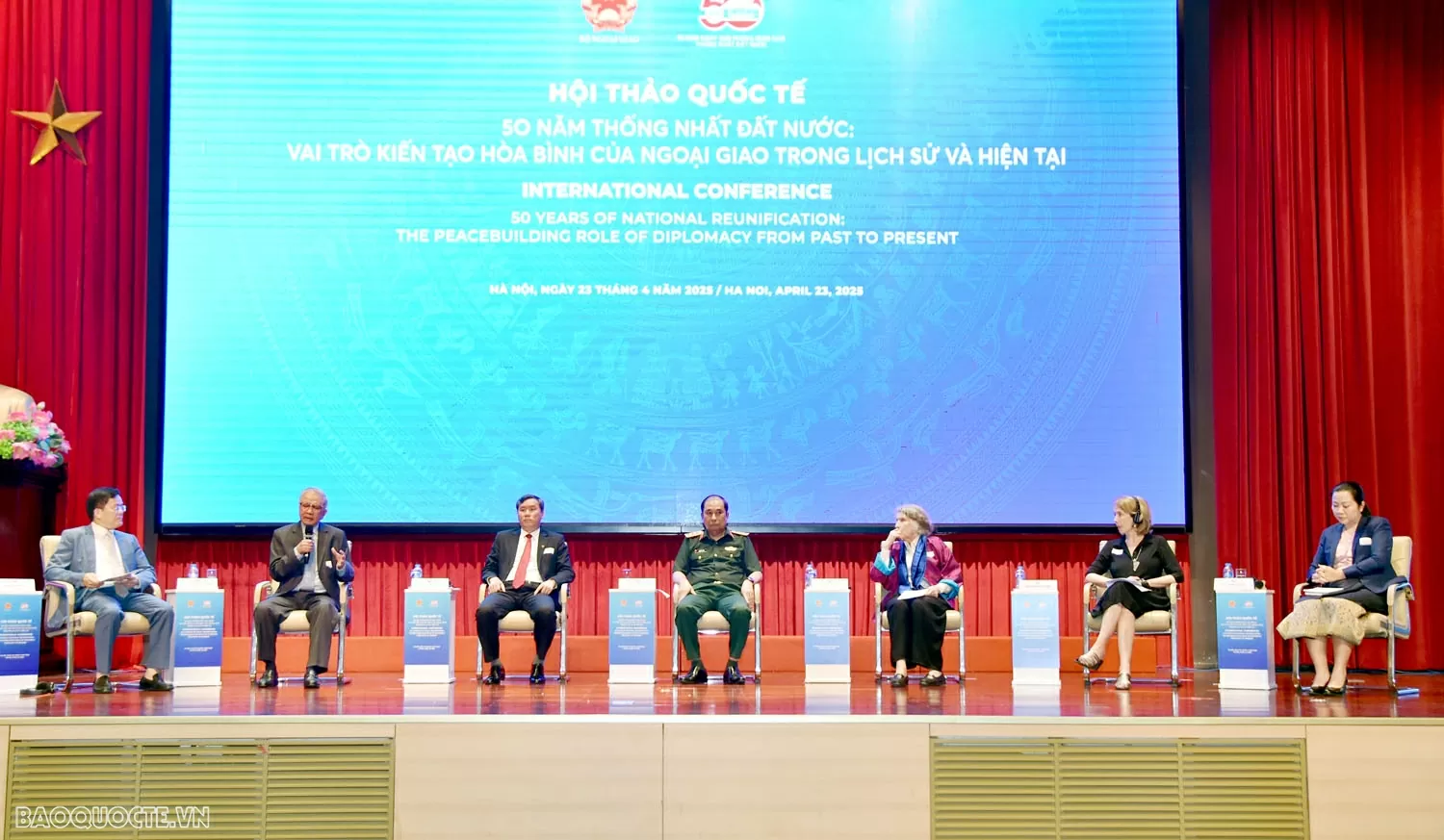 |
| On April 23, the Ministry of Foreign Affairs organized an international scientific conference “50 years of national reunification: The role of diplomacy in peace-building in history and the present” on the occasion of the 50th anniversary of the Liberation of the South and national reunification. (Photo: Quang Hoa) |
At the international scientific conference “50 years of national reunification: The role of diplomacy in peacemaking in history and present” on April 23, organized by the Ministry of Foreign Affairs, on the occasion of the 50th anniversary of the Liberation of the South and national reunification, as well as the return home day of those living far away from home, American scholars shared many touching messages about the reconstruction and building of bilateral relations after the war was pushed back.
Healing the “Trans-Pacific” Wound
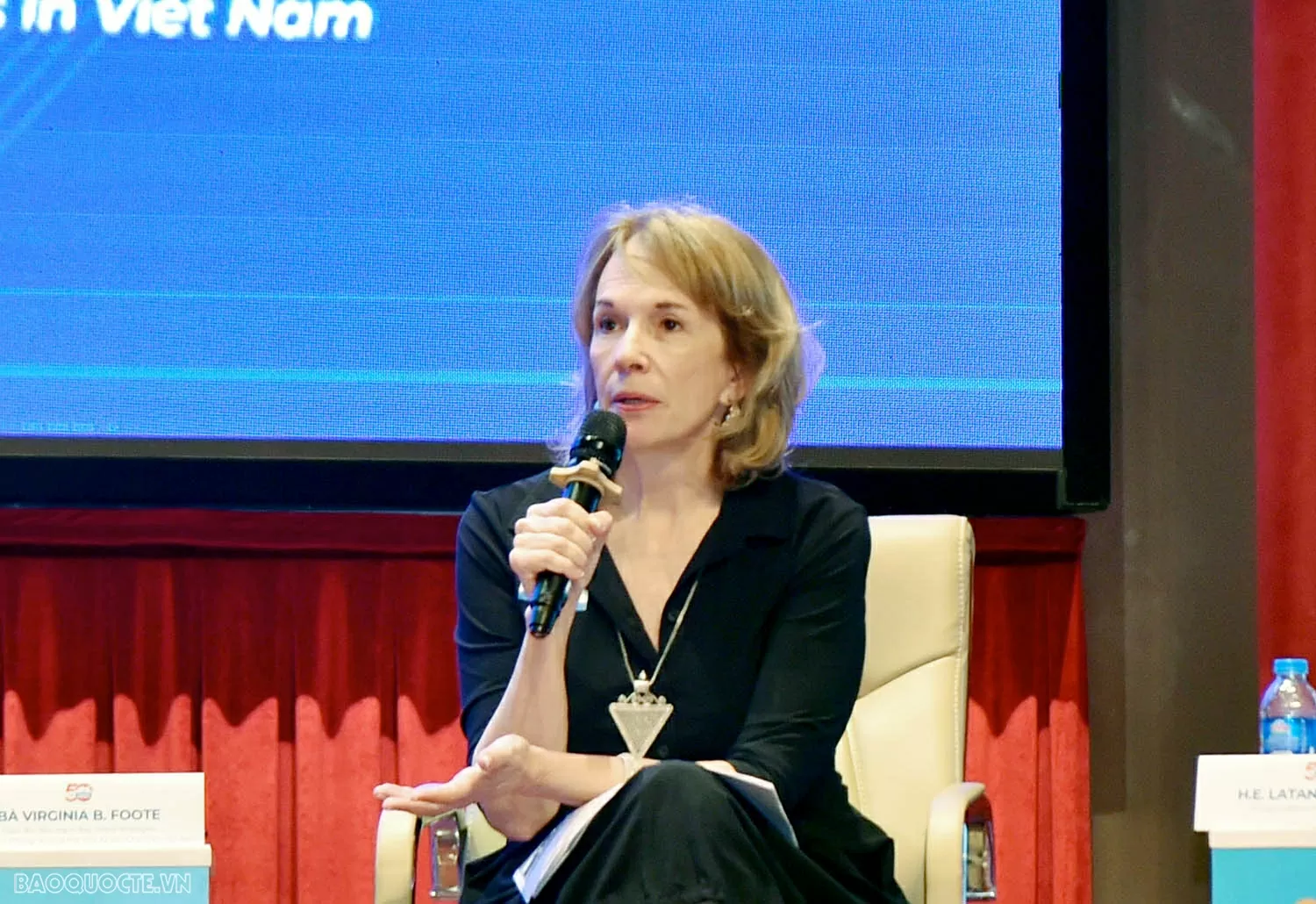 |
| Virginia B. Foote, CEO of Bay Global Strategies, Vice President of the American Chamber of Commerce in Vietnam (AmCham). (Photo: Dao Quang Hoa) |
As a great friend of Vietnam for more than 30 years, Ms. Virginia B. Foote witnessed all the unbelievable chapters of Vietnam-US relations, step by step "overcoming the past, moving towards the future", from former enemies to Comprehensive Strategic Partners.
Because she “lives in Vietnam more than in the US, and is more addicted to Vietnamese food than American food”, her sincere love for the S-shaped country has transformed into many specific contributions to the journey of normalizing and developing bilateral relations. For her tireless efforts, she was honored to receive the Friendship Medal fromthe President of Vietnam in 2016.
Speaking about the 30-year journey for the “beginning of true peace,” she said that the US and Vietnam are working together to build a future for a new relationship and a new peace. Looking back in time, it can be seen that the Paris Agreement not only ended the war, but also laid the first bricks for the “house” of bilateral relations in peacetime. During the negotiation of the Paris Agreement, the two countries established close ties, creating the foundation for the next phase, building a new and better relationship.
Throughout the progress of Vietnam-US relations, the silent yet great contributions of generations of veterans from both countries have been indispensable. Since the 1980s, there has been a special post-war bond between soldiers who once lived on opposite sides of the front lines, intertwined in the common mission of resolving the legacy of war.
Here, two influential figures in American politics on healing the “trans-Pacific” wounds were Senator John Kerry and Senator John McCain. Despite many conflicting views on the war, the two men shared a great ambition: to build lasting peace for Vietnam-US relations. From there, the two senators agreed to put aside their differences to cultivate their ideals together, with the help of many other veterans.
Not wasting the efforts of peace-loving soldiers, the governments and people of the two countries have gone hand in hand through many turning points, reaching the milestone of Comprehensive Partnership in 2013 and exactly 10 years later, opening a new chapter of bilateral relations when upgrading to Comprehensive Strategic Partnership.
Cooperation between the two countries spans a wide range of fields: politics, economics, defense, culture, and education. “To achieve what we have today requires great efforts from both sides: each Vietnamese ministry and each US agency, to create a comprehensive, close relationship, and to steadfastly overcome the difficult post-war years,” Ms. Virginia B. Foote affirmed.
37 years of "breaking rocks to open the road"
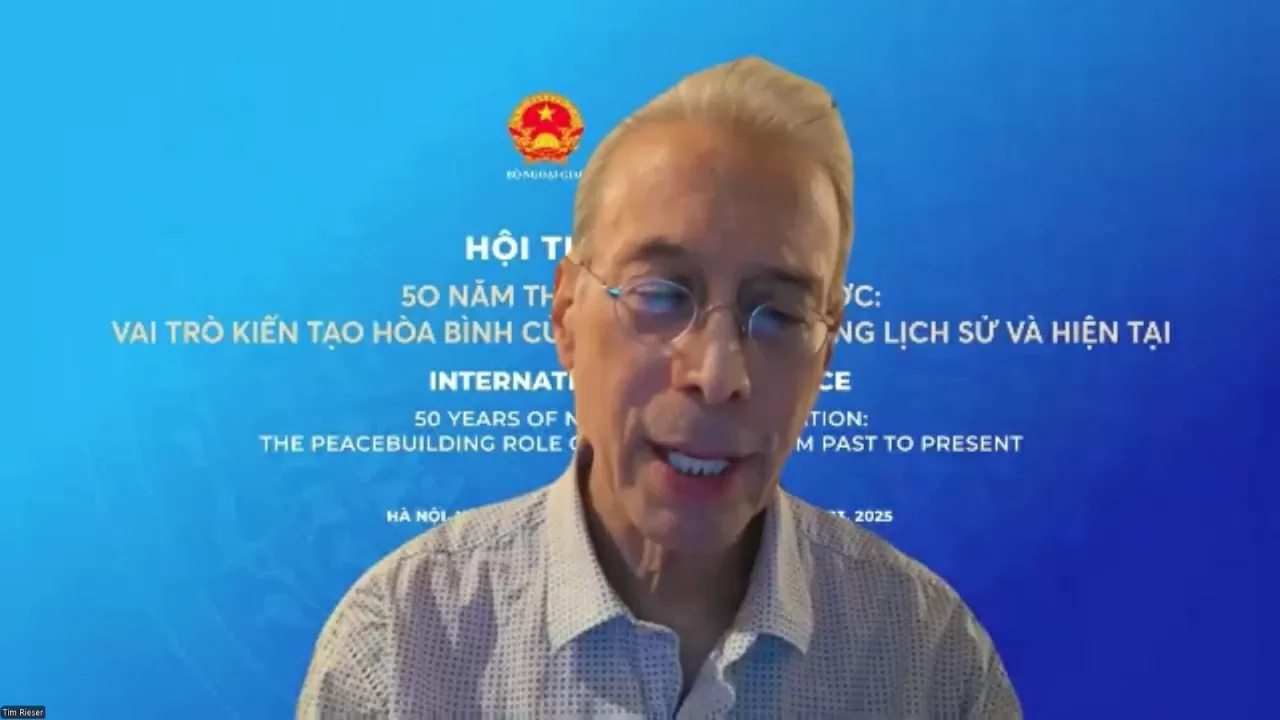 |
Mr. Tim Rieser, Senior Advisor to Senator Peter Welch, Senior Assistant for Foreign Policy to Senator Patrick Leahy spoke online at the Workshop. |
Working diligently and wholeheartedly for the cause of mending Vietnam-US relations for 37 years with Senator Patrick Leahy, Mr. Tim Rieser has spared no effort to contribute to Washington's efforts to overcome the consequences of war in our country. More than a quarter of a century has passed, but Mr. Tim Rieser's contributions to projects on bomb and mine clearance, toxic pollution treatment, support for people with disabilities, and identification of remains of missing American and Vietnamese soldiers remain valuable, contributing to "clearing the way" for the two countries to move towards new milestones in bilateral relations.
According to Mr. Tim Rieser, the normalization of relations in 1995 not only ended the confrontation, opened the door of hope for the future of the two countries, but also marked the starting point for the work that has lasted for the past 37 years between him and Senator Leahy, inheriting the legacy that Senators Kerry and McCain left in healing the wounds of war with Vietnam.
Although having been through wartime and deeply understanding the devastating consequences that conflict caused to the two peoples, Senator Leahy and Mr. Tim Rieser never thought that they would have the opportunity to “break the rock and pave the way” for Vietnam-US cooperation. However, the normalization of relations has brought a ray of hope. Mr. Patrick Leahy, then Chairman of the US Senate Appropriations Committee, and his assistant Mr. Tim Rieser were able to focus on overcoming the consequences of war, which caused many difficulties and was the “cornerstone” that prevented the development of relations to a new level.
In particular, the two men were accompanied by Senior Lieutenant General Nguyen Chi Vinh, who shared the same vision as Senator Leahy, wanting the two countries to "help each other" rise from the quagmire of the past, towards the "light at the end of the tunnel".
General Vinh and Senator Leahy worked closely together and became close friends. “Over the years, that relationship has been the driving force for us, along with support from USAID, the US Department of State, the US Department of Defense, and the respective Vietnamese agencies, to begin the process of resolving the legacy of war,” said Mr. Tim Rieser.
Since then, the United States has been involved in dioxin remediation at Da Nang airport and is currently undertaking similar work at Bien Hoa airport. Washington is also implementing programs to support people with disabilities in 10 provinces in Vietnam who have suffered severe physical and cognitive disabilities due to bombs and mines or exposure to Agent Orange.
“First of all, we need to change our perspective and the way we treat each other, because there are still some suspicions and resentments left over from the war. Therefore, we need to change our way of thinking and find solutions to turn that resentment into opportunities for cooperation,” Mr. Tim Rieser emphasized.
Awakening the source of development from Vietnam
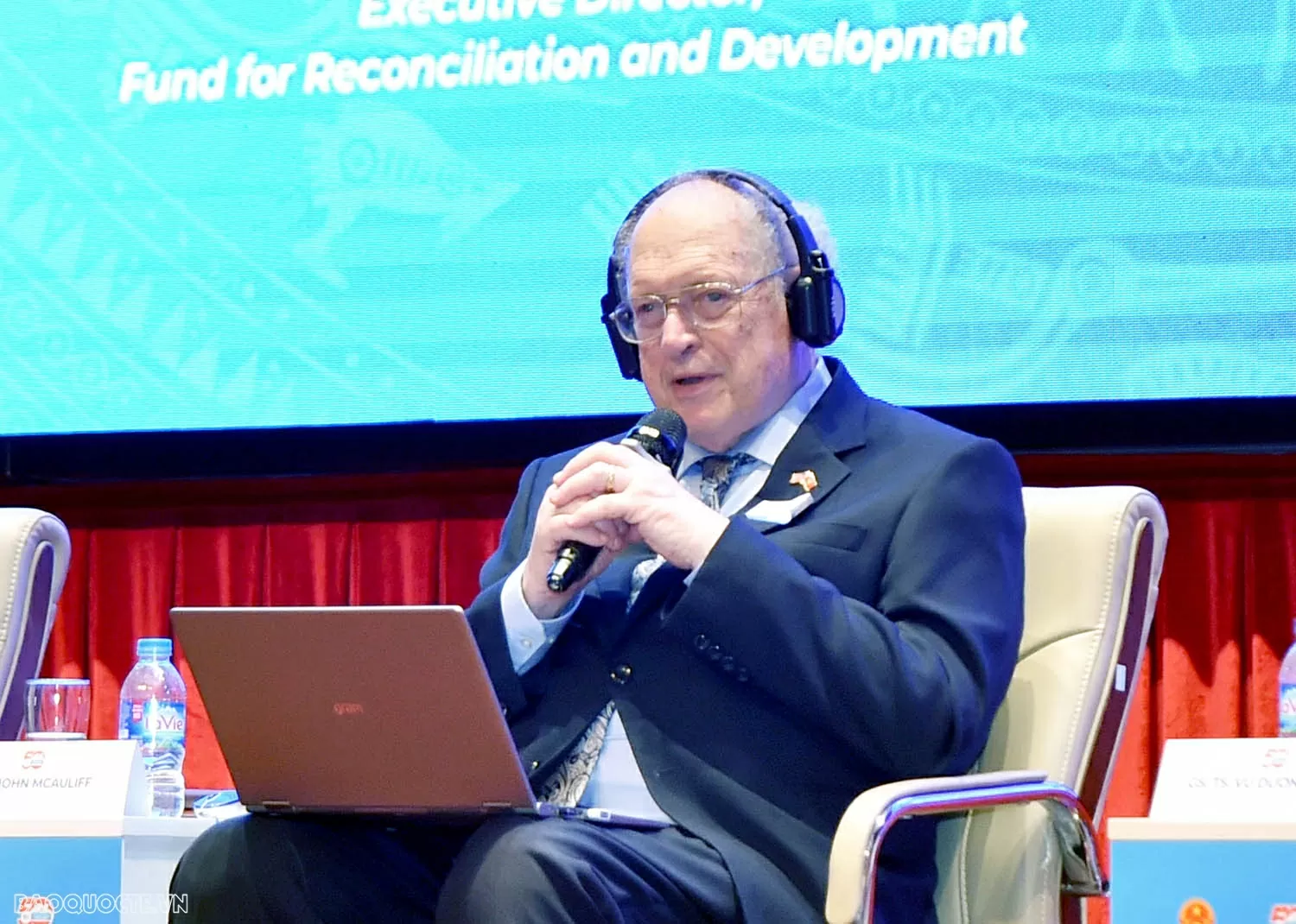 |
| Mr. John McAuliff, Executive Director of the Foundation for Reconciliation and Development (FRD). (Photo: Quang Hoa) |
“I opposed the Vietnam War for both reason and emotion,” said John McAuliff, CEO of the Foundation for Reconciliation and Development (FRD), in an interview with the Vietnamese press on the occasion of the 50th anniversary of the signing of the Paris Agreement (January 27, 1973 - January 27, 2023).
The above statement was drawn from his time participating in the vibrant anti-war movement in the US from 1967 to 1975. He was one of the people who actively campaigned for the signing of the Paris Agreement in 1973, contributing to Vietnam's "resounding victory across five continents, shaking the world" against the forces on the other side of the Pacific.
Over the years, the people-to-people diplomacy activities carried out by him and FRD have helped connect and enhance exchanges between individuals and non-governmental organizations in the US and Vietnam. For these contributions, he was awarded the Medal for Peace and Friendship among Nations by the Vietnam Union of Friendship Organizations (VUFO) in 2018 and the Friendship Medal in 2024.
Speaking about “Vietnam’s prospects for diplomatic reconciliation”, Mr. John McAuliff affirmed, “Vietnam is the country that has taught me almost everything I know about creative diplomacy over the past 50 years”. In the coming time, Vietnam can take advantage of and promote its role as a mediator and dialoguer in international conflicts, through coordination between relevant ministries and sectors, promoting mutual understanding and building trust between countries. In particular, he especially emphasized the role of VUFO in connecting and expanding the diplomatic network between the Vietnamese people and peace-loving friends around the world.
Second, Vietnam can carry out a deep reform from within, creating favorable conditions for economic development, thereby unleashing the creativity and productive capacity of the entire population, while still upholding the values of socialism. “Let’s show the world the benefits of opening up to commercial investment sources. It was the Doi Moi process that contributed to the US lifting the embargo on Vietnam.”
Third, Vietnam can promote its leadership and mediation role, fulfill its international responsibilities well, besides participating in UN peacekeeping missions, and proactively support humanitarian solutions in conflict areas.
Half a century ago, the Vietnamese people, with strong support from the public around the world, even within the United States, overcame a force that was considered “invincible” after 1945. Today, he hopes that Vietnam will play a proactive and positive role in maintaining stability, prosperity and inspiring the aspirations for development for countries around the world.
Source: https://baoquocte.vn/nhung-canh-chim-khong-mo-i-tu-nuoc-my-vi-ne-n-ho-a-bi-nh-viet-nam-312147.html


![[Photo] President Luong Cuong presents the 40-year Party membership badge to Chief of the Office of the President Le Khanh Hai](https://vphoto.vietnam.vn/thumb/1200x675/vietnam/resource/IMAGE/2025/5/19/a22bc55dd7bf4a2ab7e3958d32282c15)
![[Photo] Panorama of the Opening Ceremony of the 43rd Nhan Dan Newspaper National Table Tennis Championship](https://vphoto.vietnam.vn/thumb/1200x675/vietnam/resource/IMAGE/2025/5/19/5e22950340b941309280448198bcf1d9)

![[Photo] Close-up of Tang Long Bridge, Thu Duc City after repairing rutting](https://vphoto.vietnam.vn/thumb/1200x675/vietnam/resource/IMAGE/2025/5/19/086736d9d11f43198f5bd8d78df9bd41)
![[Photo] General Secretary To Lam attends the conference to review 10 years of implementing Directive No. 05 of the Politburo and evaluate the results of implementing Regulation No. 09 of the Central Public Security Party Committee.](https://vphoto.vietnam.vn/thumb/1200x675/vietnam/resource/IMAGE/2025/5/19/2f44458c655a4403acd7929dbbfa5039)

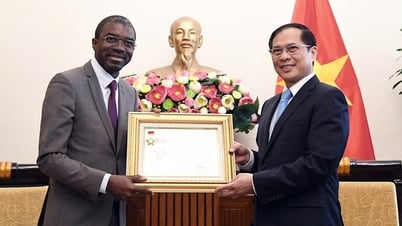

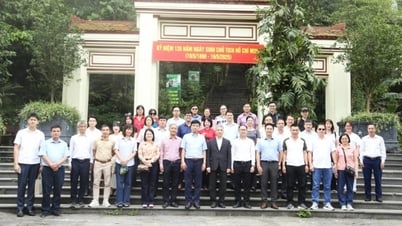
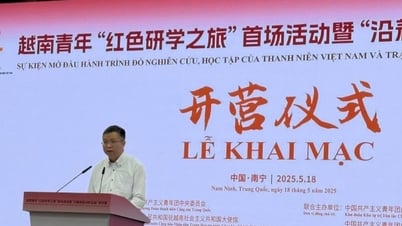
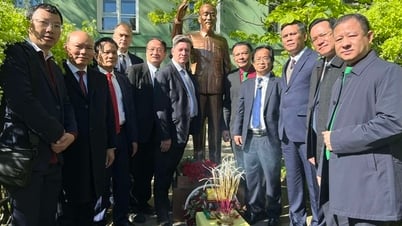
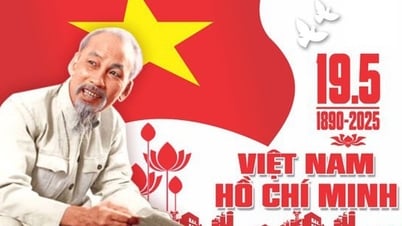
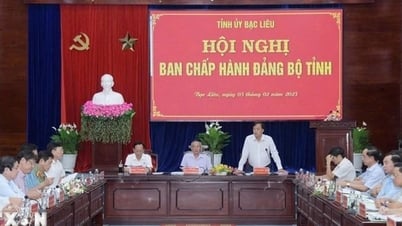




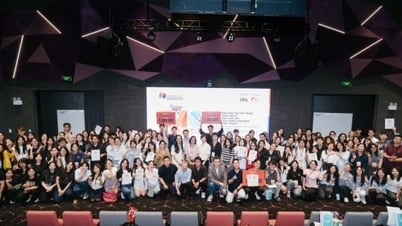
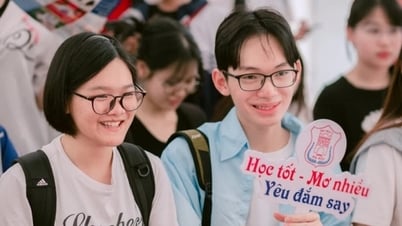

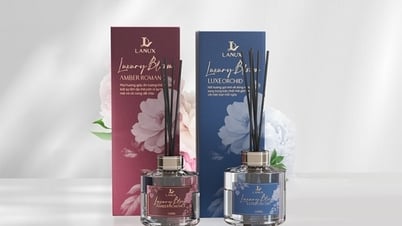


![[Photo] Prime Minister Pham Minh Chinh inspects the progress of the National Exhibition and Fair Center project](https://vphoto.vietnam.vn/thumb/1200x675/vietnam/resource/IMAGE/2025/5/19/35189ac8807140d897ad2b7d2583fbae)















































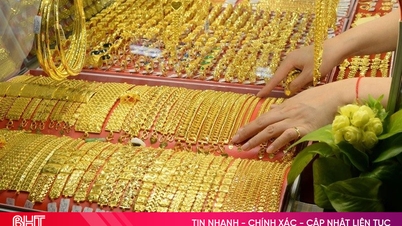

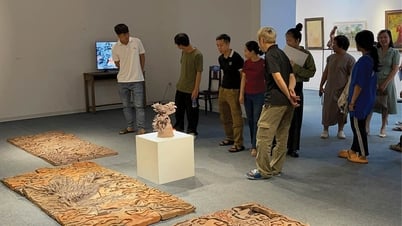



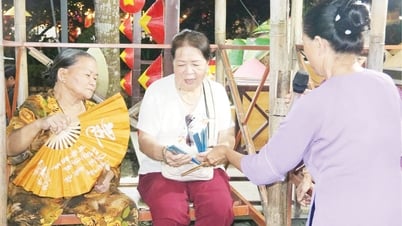
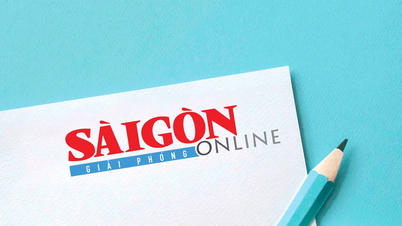









![[VIDEO] - Enhancing the value of Quang Nam OCOP products through trade connections](https://vphoto.vietnam.vn/thumb/402x226/vietnam/resource/IMAGE/2025/5/17/5be5b5fff1f14914986fad159097a677)



Comment (0)